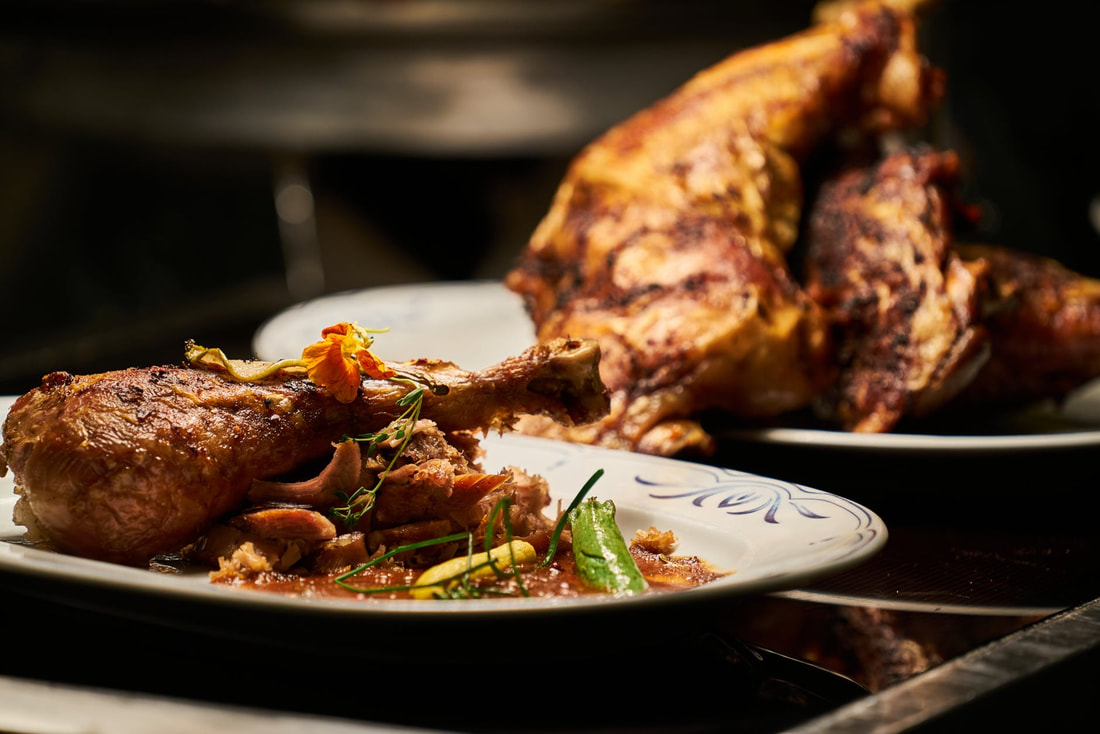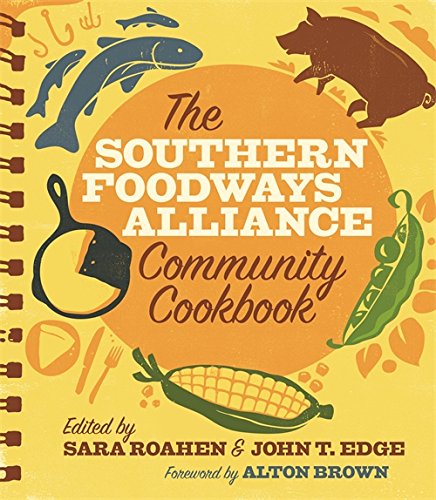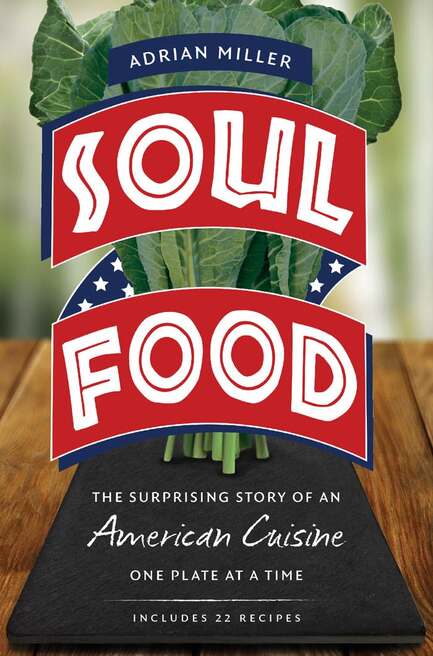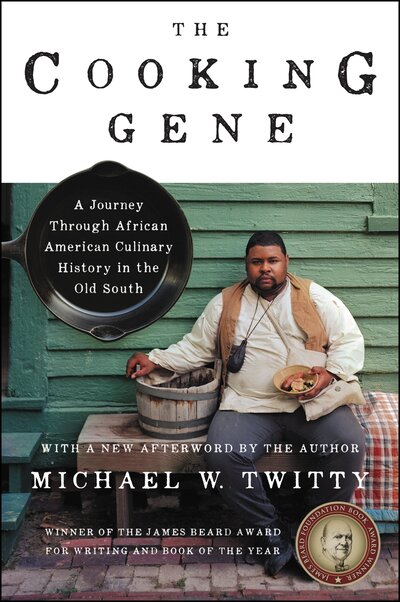|
The Breadcrumbs widget will appear here on the published site.
The Real Heart of the South
By Rachel Rivenbark
Strange though the phrasing may sound, it was a deliberate choice which led to my stating that the three books I am about to present ought to be “experienced” rather than simply “read.” Although all three of them make for very interesting casual reading for the idle foodie looking for something to fill the time, they can also very much be defined as three books which any serious southern food enthusiast ought to read and take to heart.
These aren’t your average glossy-paged cookbooks with staged dishes, mile-long ingredient lists, and“unique” twists on classics that weren’t broken to begin with. All three seek to engage with the topic of southern culture and cuisine in a unique and interesting way, delving deep into everything that has come and gone to define the meaning of “southern.” They celebrate all that is good about southern culture, while at the same time critically examining and rejecting the racist and classist beliefs that for so long has remained a prominent part of southern society.
For any history buff, southern food enthusiast, sociologist, or just plain curious onlooker, these books are certain to be a valuable addition to any collection. The Southern Foodways Alliance Community Cookbook (University of Georgia Press, 2010 - Edited by Sara Roahen & John T. Edge, Foreword by Alton Brown) Firstly, I’d like to introduce you to the only actual, traditional cookbook that’s on this list. It’s pretty easy to see from the front cover of The Southern Foodways Alliance Community Cookbook alone that there are some pretty big names in southern cooking that worked hard to publish this project. I’m sure we’re all familiar with chef Alton Brown, the Bill Nye-esque lovable lunatic who’s been blowing our minds with culinary science on Good Eats since 1998. Culinary bibliophiles may also recognize the names of the editors of this book: Sara Roahen, who published Gumbo Tales: Finding My Place at the New Orleans Table in 2009, and John T. Edge, who published the much-proclaimed bestselling book The Potlikker Papers in 2017. There’s a lot of big heat behind this book, even without delving into the marvel that is The Southern Foodways Alliance, itself. The Southern Foodways Alliance is a member-supported academic organization devoted to the documentation, collection, and preservation of the beautiful and diverse oral histories that make up Southern history and culture. Telling the stories of the unsung culinary figures in their communities, they seek to create a broad and honest people’s history of the South, confronting the - at times, ugly - realities of Southern culture and history critically, in the hopes of creating a better South for the future. They produce podcasts, interviews, educational articles, videos, and countless other resources for the education of those seeking to learn about, and keep up with, Southern culinary culture. Including, as of 2010, this cookbook comprised of over 170 different recipes collected from Southern home cooks and restaurant chefs alike. Covering every base from boiled peanuts to fresh corn fritters to some of the best fried catfish you’ll ever have in your life, this cookbook contains a recipe for damn near every Southern dish, sauce, and pickle you could imagine, and quite a few you couldn’t (braised possum, anybody? Anyone? Gopher, Everett?). If you’re looking for an all-encompassing education on what constitutes Southern flavor profiles, both good and bad - none of us really needed to see the return of Ambrosia Fruit Salad, but it’s a culture thing - then I highly recommend you buy this book as soon as possible. In addition to the wonderful recipes all throughout, every single recipe also credits the person from whom it was acquired, and provides a short summary of the contributor’s history with the dish, or some insight into it. All in all, it’s a heartwarming, educational, insightful glimpse into what it means to be a cook in the south, and the impact that food culture has had upon the South, overall. To learn more about The Southern Foodways Alliance, or to find out where you can order a copy of the book for yourself, please visit their website here: https://www.southernfoodways.org/publication/southern-foodways-alliance-community-cookbook/ Soul Food: The Surprising Story of an American Cuisine, One Plate At a Time (University of North Carolina Press, 2013 - Adrian Miller) While The Southern Foodways Alliance Community Cookbook focuses more on the actual recipes involved in southern food culture, author Adrian Miller’s Soul Food: The Surprising Story of an American Cuisine, One Plate at a Time instead delves into the debate on what southern food and soul food actually are, all that they represent in American society, and how exactly they might be distinguished from one another. As a board member for The Southern Foodways Alliance, Miller is a former politician turned food writer who’s spent the last several decades delving face-first into the historical origins of southern food. This fascinating examination of soul food gastronomy tackles the origins of some of the most quintessential staples of the soul food family: fried chicken, catfish, black-eyed peas, macaroni and cheese, collard greens, yams, cornbread, hot sauce, and more. Within each chapter, Miller gives an in-depth history lesson on the original sourcing for these dishes, their journeys from African to American cuisine, and how throughout history, they eventually came to be the classic soul food favorites that we know today. Strewn throughout the book are recipes for the very dishes he describes… including a surprisingly strong case for chitlins, the oft-emphasized smell aside. Ahead of anything else, this book is based in history, and in showing all of the twists and turns that these foods - and the cultural practices with which they are associated - took to get to where they are today. Particularly if you’re interested in history surrounding the times of enslavement, the Great Depression, and the Black Power Movement in the 1960s, this book will provide a fascinating and downright tasty breakdown of how dishes like fried chicken and collard greens and chitlins and hot sauce came to be. To learn more about Adrian Miller, or to find out where you can order this book for yourself, please visit his website here: http://adrianemiller.com/about-the-book/soul-food-2/ The Cooking Gene: A Journey Through African American Culinary History in the Old South (HarperCollins Publishers, 2017 - Michael W. Twitty) If The Southern Foodways Alliance Community Cookbook is the book that every history-adjacent foodie should own, and Soul Food is the book that every food-adjacent historian should own, then culinary historian Michael W. Twitty’s The Cooking Gene: A Journey Through African American Culinary History in the Old South is the book that everybody needs to read, regardless of hobbies and interests. Beautifully navigating the fine line between memoir and history book, Twitty’s complicated, anachronous journey weaving back and forth between these two genres as he pursues his own history and the history of his people is nothing short of stellar in its execution. The Cooking Gene quite literally takes readers back in time through Twitty’s staunch devotion to accurate historical reenactment, examining in depth the very grassroots origins of the African American influence upon what we now call southern cooking. The book details key moments in Twitty’s life surrounding his understanding of food, and how that relates to his ancestry and his concept of racial identity - a topic which, as readers quickly discover while reading this book, is much more complicated and all-encompassing than white readers in particular may choose to believe. This is not a cookbook, although there are recipes occasionally strewn throughout it. Nor is it strictly a book about food, although the title may lead you to believe otherwise. Although Twitty uses the generational connection of recipes and cooking techniques passed down through the ages to help guide his narrative, and it is the medium through which he chooses to engage with the past as both a historian and reenactor, this is a book about race and identity and family and survival and finding ways to define oneself in the wake of genealogical decimation. Poignant, blunt, cutting, emotional, and jovial from cover to cover, The Cooking Gene is a book that I very much anticipate someday reaching the same heights as Julia Child’s My Life in France. To learn more about Michael Twitty, to find out where you can order a copy of The Cooking Gene, or to pursue more knowledge about African American culinary history, please visit Twitty’s blog here: https://afroculinaria.com/
0 Comments
CommentsYour comment will be posted after it is approved.
Leave a Reply. |
AuthorWrite something about yourself. No need to be fancy, just an overview. Archives
March 2024
Categories
All
|






 RSS Feed
RSS Feed






